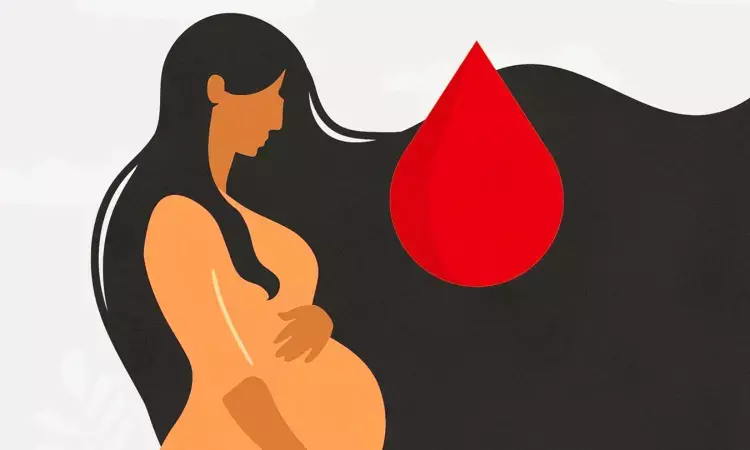- Home
- Medical news & Guidelines
- Anesthesiology
- Cardiology and CTVS
- Critical Care
- Dentistry
- Dermatology
- Diabetes and Endocrinology
- ENT
- Gastroenterology
- Medicine
- Nephrology
- Neurology
- Obstretics-Gynaecology
- Oncology
- Ophthalmology
- Orthopaedics
- Pediatrics-Neonatology
- Psychiatry
- Pulmonology
- Radiology
- Surgery
- Urology
- Laboratory Medicine
- Diet
- Nursing
- Paramedical
- Physiotherapy
- Health news
- Fact Check
- Bone Health Fact Check
- Brain Health Fact Check
- Cancer Related Fact Check
- Child Care Fact Check
- Dental and oral health fact check
- Diabetes and metabolic health fact check
- Diet and Nutrition Fact Check
- Eye and ENT Care Fact Check
- Fitness fact check
- Gut health fact check
- Heart health fact check
- Kidney health fact check
- Medical education fact check
- Men's health fact check
- Respiratory fact check
- Skin and hair care fact check
- Vaccine and Immunization fact check
- Women's health fact check
- AYUSH
- State News
- Andaman and Nicobar Islands
- Andhra Pradesh
- Arunachal Pradesh
- Assam
- Bihar
- Chandigarh
- Chattisgarh
- Dadra and Nagar Haveli
- Daman and Diu
- Delhi
- Goa
- Gujarat
- Haryana
- Himachal Pradesh
- Jammu & Kashmir
- Jharkhand
- Karnataka
- Kerala
- Ladakh
- Lakshadweep
- Madhya Pradesh
- Maharashtra
- Manipur
- Meghalaya
- Mizoram
- Nagaland
- Odisha
- Puducherry
- Punjab
- Rajasthan
- Sikkim
- Tamil Nadu
- Telangana
- Tripura
- Uttar Pradesh
- Uttrakhand
- West Bengal
- Medical Education
- Industry
Addition of mid-section loop ligation enhances hemostatic efficacy of intrauterine balloon tamponade for treating PPH: Study

Researchers have demonstrated that intrauterine balloon tamponade combined with mid-section loop ligation significantly improves the management of postpartum hemorrhage (PPH), especially in patients who have undergone cesarean section. A recent study was conducted by Liu W. and colleagues published in the journal Archives of Gynecology and Obstetrics.
Postpartum hemorrhage is a leading cause of maternal morbidity and mortality worldwide. Intrauterine balloon tamponade applies internal uterine pressure, while uterine compression sutures like mid-section loop ligation exert external pressure to control bleeding. This study aimed to evaluate the hemostatic and perioperative outcomes of combining these techniques in PPH management.
The study analyzed 74 pregnancies complicated with PPH after CS at a single hospital between February 2021 and May 2022.
Patients were divided into two groups:
• Study group (30 cases): Intrauterine balloon tamponade combined with mid-section loop ligation.
• Control group (44 cases): Treated with intrauterine balloon tamponade alone. Important endpoints such as surgical time, blood loss, perioperative outcomes, hospital stay, and uterine recovery were compared between groups.
Surgery Time:
• The study group had a significantly shorter procedural time compared to the control group.
Blood Loss:
• The study group had reduced postoperative bleeding, suggesting better hemostatic control.
Hospital Stay:
• No statistical difference was observed in the hospital stay between the groups.
Uterine Recovery:
• Both groups achieved similar results on uterine recovery; hence, combining techniques has no undesirable effects.
This study shows that combining mid-section loop ligation with intrauterine balloon tamponade significantly enhances hemostatic efficacy, cuts surgical time and minimises post-operative blood loss. Such a finding gives a strong basis for trying this combined approach within a clinical setting, thereby providing an opportunity to improve patients' outcomes for postpartum hemorrhage.
Reference:
Dr Riya Dave has completed dentistry from Gujarat University in 2022. She is a dentist and accomplished medical and scientific writer known for her commitment to bridging the gap between clinical expertise and accessible healthcare information. She has been actively involved in writing blogs related to health and wellness.
Dr Kamal Kant Kohli-MBBS, DTCD- a chest specialist with more than 30 years of practice and a flair for writing clinical articles, Dr Kamal Kant Kohli joined Medical Dialogues as a Chief Editor of Medical News. Besides writing articles, as an editor, he proofreads and verifies all the medical content published on Medical Dialogues including those coming from journals, studies,medical conferences,guidelines etc. Email: drkohli@medicaldialogues.in. Contact no. 011-43720751


